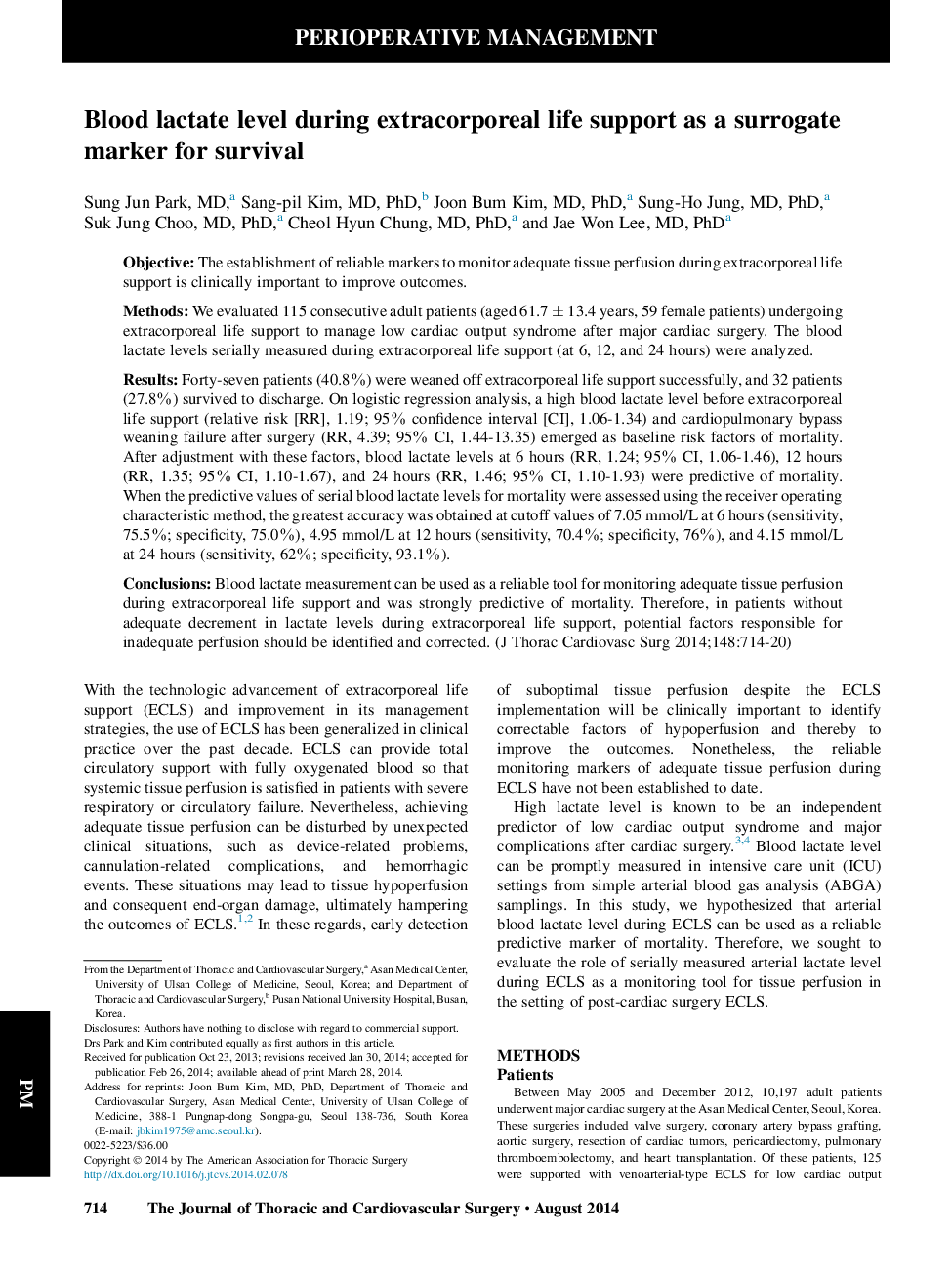| Article ID | Journal | Published Year | Pages | File Type |
|---|---|---|---|---|
| 2980499 | The Journal of Thoracic and Cardiovascular Surgery | 2014 | 7 Pages |
ObjectiveThe establishment of reliable markers to monitor adequate tissue perfusion during extracorporeal life support is clinically important to improve outcomes.MethodsWe evaluated 115 consecutive adult patients (aged 61.7 ± 13.4 years, 59 female patients) undergoing extracorporeal life support to manage low cardiac output syndrome after major cardiac surgery. The blood lactate levels serially measured during extracorporeal life support (at 6, 12, and 24 hours) were analyzed.ResultsForty-seven patients (40.8%) were weaned off extracorporeal life support successfully, and 32 patients (27.8%) survived to discharge. On logistic regression analysis, a high blood lactate level before extracorporeal life support (relative risk [RR], 1.19; 95% confidence interval [CI], 1.06-1.34) and cardiopulmonary bypass weaning failure after surgery (RR, 4.39; 95% CI, 1.44-13.35) emerged as baseline risk factors of mortality. After adjustment with these factors, blood lactate levels at 6 hours (RR, 1.24; 95% CI, 1.06-1.46), 12 hours (RR, 1.35; 95% CI, 1.10-1.67), and 24 hours (RR, 1.46; 95% CI, 1.10-1.93) were predictive of mortality. When the predictive values of serial blood lactate levels for mortality were assessed using the receiver operating characteristic method, the greatest accuracy was obtained at cutoff values of 7.05 mmol/L at 6 hours (sensitivity, 75.5%; specificity, 75.0%), 4.95 mmol/L at 12 hours (sensitivity, 70.4%; specificity, 76%), and 4.15 mmol/L at 24 hours (sensitivity, 62%; specificity, 93.1%).ConclusionsBlood lactate measurement can be used as a reliable tool for monitoring adequate tissue perfusion during extracorporeal life support and was strongly predictive of mortality. Therefore, in patients without adequate decrement in lactate levels during extracorporeal life support, potential factors responsible for inadequate perfusion should be identified and corrected.
